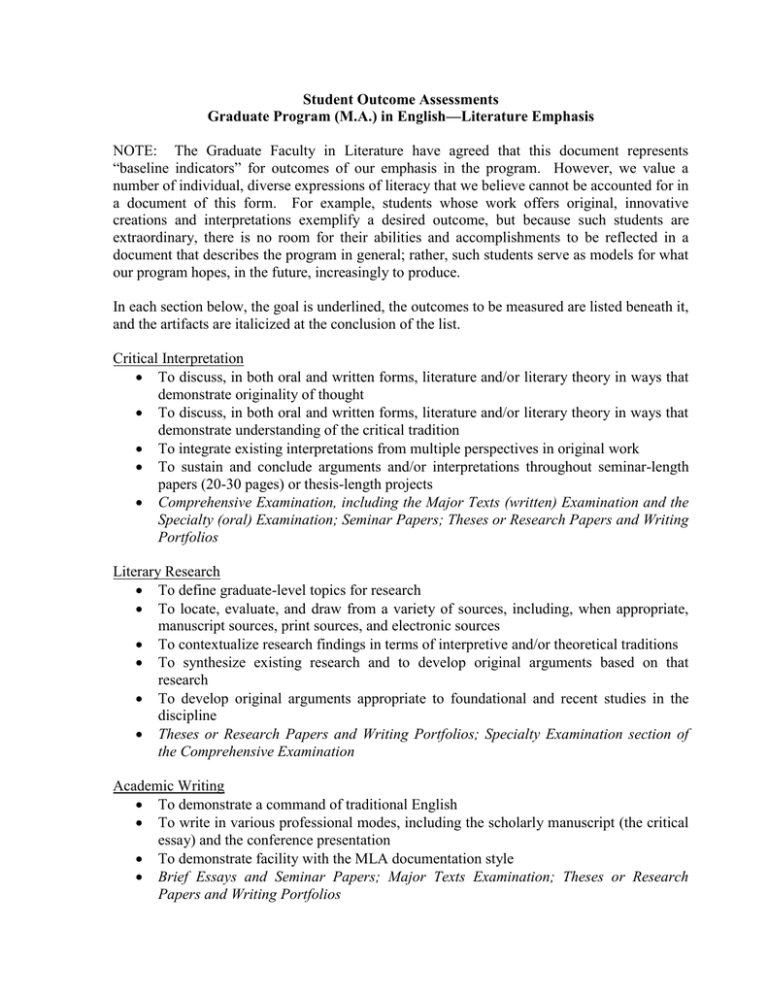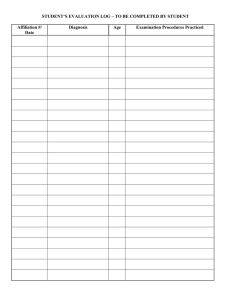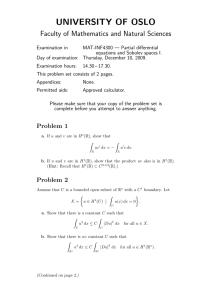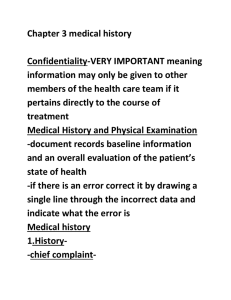Student Outcome Assessments Graduate Program (M.A.) in English—Literature Emphasis
advertisement

Student Outcome Assessments Graduate Program (M.A.) in English—Literature Emphasis NOTE: The Graduate Faculty in Literature have agreed that this document represents “baseline indicators” for outcomes of our emphasis in the program. However, we value a number of individual, diverse expressions of literacy that we believe cannot be accounted for in a document of this form. For example, students whose work offers original, innovative creations and interpretations exemplify a desired outcome, but because such students are extraordinary, there is no room for their abilities and accomplishments to be reflected in a document that describes the program in general; rather, such students serve as models for what our program hopes, in the future, increasingly to produce. In each section below, the goal is underlined, the outcomes to be measured are listed beneath it, and the artifacts are italicized at the conclusion of the list. Critical Interpretation To discuss, in both oral and written forms, literature and/or literary theory in ways that demonstrate originality of thought To discuss, in both oral and written forms, literature and/or literary theory in ways that demonstrate understanding of the critical tradition To integrate existing interpretations from multiple perspectives in original work To sustain and conclude arguments and/or interpretations throughout seminar-length papers (20-30 pages) or thesis-length projects Comprehensive Examination, including the Major Texts (written) Examination and the Specialty (oral) Examination; Seminar Papers; Theses or Research Papers and Writing Portfolios Literary Research To define graduate-level topics for research To locate, evaluate, and draw from a variety of sources, including, when appropriate, manuscript sources, print sources, and electronic sources To contextualize research findings in terms of interpretive and/or theoretical traditions To synthesize existing research and to develop original arguments based on that research To develop original arguments appropriate to foundational and recent studies in the discipline Theses or Research Papers and Writing Portfolios; Specialty Examination section of the Comprehensive Examination Academic Writing To demonstrate a command of traditional English To write in various professional modes, including the scholarly manuscript (the critical essay) and the conference presentation To demonstrate facility with the MLA documentation style Brief Essays and Seminar Papers; Major Texts Examination; Theses or Research Papers and Writing Portfolios



